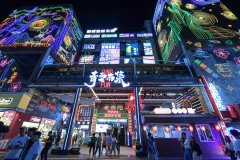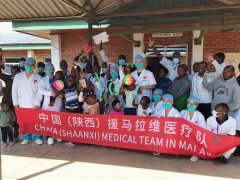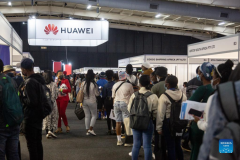South Africa struggles with post-holiday spike in COVID-19South Africa is struggling to cope with a spike in COVID-19 cases driven by the spread of its more infectious variant during widespread holiday travel
January 11, 2021, 7:44 PM
5 min read
Share to FacebookShare to TwitterEmail this articleJOHANNESBURG -- South Africa is struggling to cope with a spike in COVID-19 cases that has already overwhelmed many hospitals, as people returning from widespread holiday travel have spread the country's more infectious coronavirus variant.
Of particular concern is Gauteng province, the country's most populous, which includes the cities of Johannesburg and Pretoria. Authorities say it is already seeing a spike in new infections after people traveled to coastal areas, where the variant is dominant.
“We expect that Gauteng is going to be hit very soon and very hard,” said Professor Willem Hanekom, director of the Africa Health Research Institute. “It is anticipated Gauteng will have a steep curve of increased cases and hospitalizations.”
Already the Steve Biko Academic Hospital in the Pretoria area has reached capacity and has erected “fever tents” outside the main building to house people who are awaiting admission to the COVID-19 wards.
“In almost all cases the patients have to be treated, whether they are struggling to breathe or other symptoms. That is why you see these oxygen tanks here at the fever tents,” Biko hospital CEO Dr. Mathabo Mathebula said Monday.
Videos circulated on social media of many patients in the tents with oxygen masks, even as the parking lot pavement was covered with rainwater.
“Over the last seven days the infections and admissions in hospitals in Gauteng have been doubling and the number of fatalities has increased quite exponentially," Gauteng premier David Makhura said.
Hospitalizations and deaths in the province are quickly surpassing the levels of the first peak experienced in July last year, he said.
An additional 1,000 beds will be added to the Nasrec field hospital near Johannesburg’s Soweto township to cope with the rising number of patients, he said.
South African health officials are bracing for more challenging numbers.
“We are still three to four weeks away before we reach a peak but many facilities are already operating at 100% capacity,” said Professor Shabir Madhi, a specialist in vaccinology. “Many private sector hospitals are struggling to find beds and staff so it is not unique to our public sector.”
He said South Africa’s rapid increase in hospitalization is a “sign of a virus variant that is much more transmissible. Much larger numbers of people are getting infected and more people are needing hospital treatment.”
The wave of new cases is affecting all levels of society. The U.S. ambassador to South Africa, Lana Marks, announced Monday that she had COVID-19 and spent 10 days in an intensive care unit and is now recuperating at her residence. Cabinet minister Jackson Mthembu has tested positive for COVID-19 and is showing symptoms, it was announced Monday.
In response to the resurgence, South African President Cyril Ramaphosa announced that 20 land borders to neighboring Zimbabwe, Mozambique and Lesotho would be closed to many travelers until Feb. 15. In a televised address to the nation Monday night, he maintained restrictions to curb the spread of the virus, including banning alcohol sales, closing bars, enforcing a nighttime curfew and limiting attendance at public gatherings including church services and funerals.











